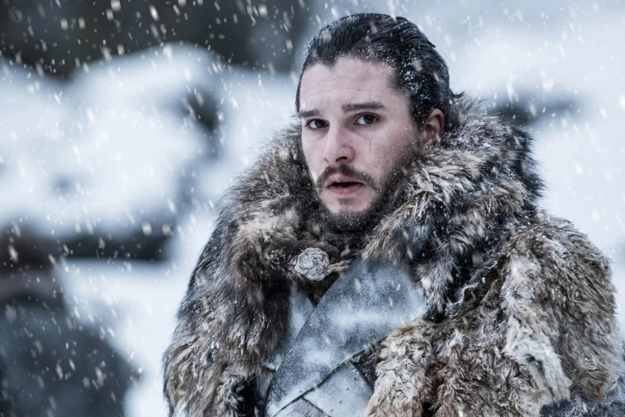
The so-called Golden Age of Television reached its undeniable zenith during the 2010s. Shows like Mad Men, Veep, Breaking Bad, and Stranger Things took TV to new and exciting levels of visual and narrative quality. However, no show had more influence or acclaim throughout the 2010s than Game of Thrones. The HBO juggernaut became synonymous with prestige television, delivering a perfect mix of political intrigue, high fantasy, and sex that became irresistible for critics and audiences.
Game of Thrones wasn’t an instant success; it was only in season 3 that the show became the must-see show on television. Two events helped the show achieve this elusive reputation. The first was Daenerys’ sacking of Astapor in the fourth episode, And Now His Watch Has Ended. The second is, of course, the Red Wedding. The episode it was featured in, The Rains of Castamere, changed the series’ course, altering the fate of multiple characters and radically shifting the power balance between the noble houses of Westeros. The groundbreaking episode showcased Game of Thrones operating at full strength, and, as a result, allowed audiences to truly understand what kind of show they were watching.
Game of Thrones sends its regards

What is it about The Rains of Castamere that was so striking? Was it the savage violence displayed against the Stark army? The shocking betrayal from Walder Frey? The horror of watching a man stabbing a pregnant woman in the belly with gory detail? Or Michelle Fairley’s harrowing, soul-piercing scream that, reader, has not left my mind since I first heard it 10 years ago?
Yes, it’s all quite mortifying. Watching it live was a shocking experience, with many viewers unable to process the carnage. I remember sitting in front of my television, mouth agape, hands shaking, and heart racing, and I read the books beforehand! I knew what was coming, yet it didn’t matter. Witnessing the slaughter was utterly traumatizing, and the episode ranks among the few instances when the adaptation far surpasses the books. The cast played no small role in bringing this nightmare to life; Michelle Fairley, Oona Chaplin, and Richard Madden delivered three of Game of Thrones‘ most powerful portrayals — devastating, deeply affecting performances that instantly entered the annals of television infamy.
However, what’s truly heartbreaking about The Rains of Castamere is its inevitability. Rewatching the episode, the season, and its two predecessors, it’s clear thatthe Red Wedding was always meant to be. Like Ned Stark’s death two seasons earlier, Tywin’s unceremonious demise in season 4, or Olenna’s grand exit in season 7, the Red Wedding made sense dramaturgically. It was the natural conclusion to Robb and Catelyn’s stories; every choice they made, every triumph, mistake, and doubt they experienced led them to the Twins on that fateful day. The Red Wedding was gut-wrenching. but didn’t feel out of place or unearned. On the contrary, it felt logical and earned.

Shock can only work if it feels unexpected, but plausible; anyone can kill anyone, but it will ring hollow if it comes out of nowhere. Game of Thrones understood this for most of its run; thus, its shocking moments hit the bull’s-eye. Think of the show’s cheapest and most unsuccessful twists — Shereen’s death by fire, Littlefinger’s execution, or Daenerys’ descent into Targaryen madness in the show’s divisive series finale; none feel satisfying because they weren’t earned. They came from a place of convenience, a way for the show to tie up loose ends or, in Shereen’s case, to shock for the sake of it. But Robb and Cat had sealed their fate long before Walder Frey turned his back on them.
The Rains of Castamere was Game of Thrones at its Game of Thrones-iest. Many fans and critics interpreted the Red Wedding as confirmation that no one was safe in this show. Yet, by then, we already knew that; no further clarification was needed. No, the Red Wedding was the show telling us there were no winners in the game. Every victory will come at the expense of something; characters will cross lines and lose their humanity in pursuit of a concept as vague and shifting as power. In Westeros, a king can rule over the largest territory and still fall prey to a few soldiers in well-concealed armor during a dinner party. Varys said it best: power is an illusion, “a shadow on the wall.”
The Red Wedding is the defining event in Game of Thrones, the show’s thesis brought to life in horrifying detail. More importantly, it’s the ultimate proof that Westeros is beyond salvation. There’s no light at the end of the tunnel, no salvation for anyone, and no matter who sits on the Iron Throne, the Seven Kingdoms will remain lawless, brutal, and treacherous because men are lawless, brutal, and treacherous. At its core, A Song of Ice and Fire is a story about violence and how inherent it is to humans, and The Red Wedding echoes that sentiment. “Valar morghulis,” indeed.
The Red Wedding was Game of Thrones at its best

Ten years later, The Rains of Castamere remains possibly the most unpredictable episode on television and the best hour in Game of Thrones. From a technical perspective, the episode is a master class in building tension before the ultimately brutal and heart-stopping climax. From an emotional perspective, The Rains of Castamere is a gut-wrenching hour that left viewers mentally drained and possibly dehydrated from the tears. From a narrative perspective, the episode is the pinnacle of storytelling and Game of Thrones‘ magnum opus. The Rains of Castamere encapsulates every major theme in the show: politics, betrayal, war, cruelty, power, and pain. A casual fan would watch it without context or understanding of the show’s complex lore and still understand what Game of Thrones is about.
It’s amazing and heartbreaking to think how far the show fell from the heights it reached in seasons 3 and 4. Still, Game of Thrones‘ legacy seems restored — for now, anyway. After all, it takes a very special show to produce an episode like The Rains of Castamere. There’s no catharsis, no payoff, no silver lining to be found — viewers looking for revenge for the Stark’s deaths would have to wait four long years before seeing the Freys pay for their crimes.
In hindsight, The Rains of Castamere is the antithesis of what audiences look for in a typical television episode. It ends in a void, a feeling of emptiness that swallows the viewer whole, and doesn’t concern itself with entertaining, at least not in the traditional sense. On the contrary, it is purposefully ruthless, daring its audience to look away. The Rains of Castamere is Game of Thrones‘ ultimate gift to television, a bleak, gritty, daring, disruptive, and unforgiving once-in-a-lifetime event that viewers won’t likely experience again.
The Red Wedding, and all eight seasons of Game of Thrones, can be streamed on Max.
Editors' Recommendations
- 5 years ago, Game of Thrones aired its last great episode. Here’s why it still holds up
- With just a few episodes, writer Darin Morgan changed The X-Files forever
- 10 best The Big Bang Theory episodes, ranked
- How House of the Dragon saved Game of Thrones’ tarnished legacy
- Game of Thrones deserves to be a great video game like Elden Ring




